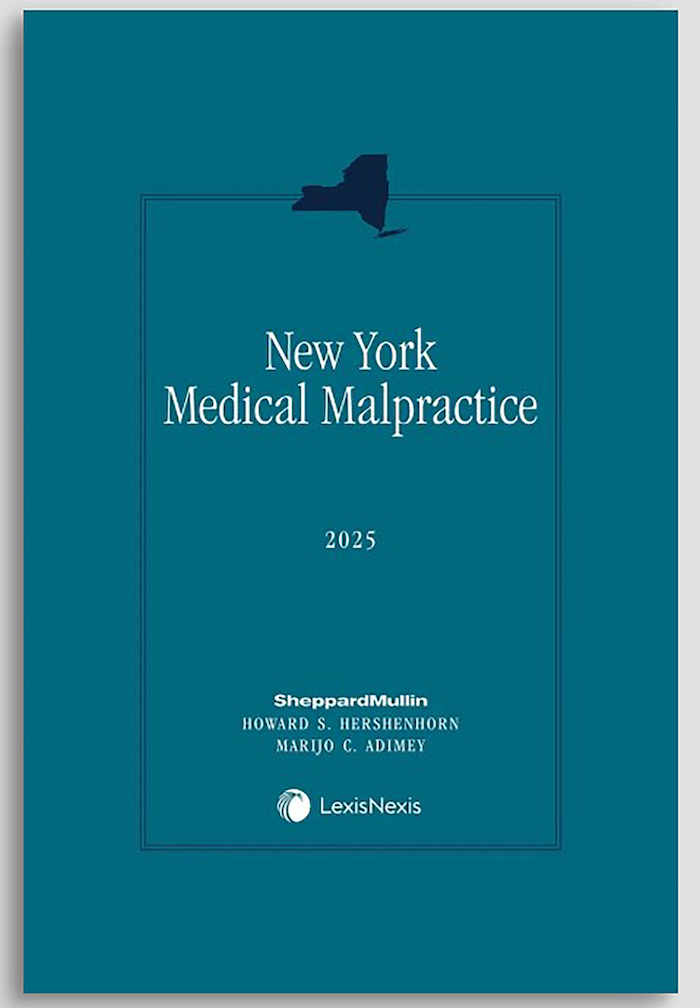Ovarian Cancer Misdiagnosis Attorneys in NYC
Gair, Gair, Conason, Rubinowitz, Bloom, Hershenhorn, Steigman & Mackauf stands as a premier trial practice renowned for its expertise in navigating complex medical malpractice lawsuits. With a dedicated team of ovarian cancer misdiagnosis attorneys based in New York, we are committed to providing a thorough evaluation of your case to determine its viability and discuss how we can assist you in seeking justice.
 Based in Manhattan, our New York personal injury law firm handle cancer misdiagnosis cases not only in New York City and New York Metro as well as in new York State.
Based in Manhattan, our New York personal injury law firm handle cancer misdiagnosis cases not only in New York City and New York Metro as well as in new York State.
The most common cases of ovarian cancer misdiagnosis that our attorneys have been handling for our clients and their family include but are not limited to:
- Misinterpretation of symptoms: Ovarian cancer symptoms can be vague and easily attributed to other conditions, such as gastrointestinal issues or hormonal imbalances. This can lead to misdiagnosis or delayed diagnosis.
- Mistaken diagnosis of other conditions: Ovarian cancer symptoms can resemble those of other gynecological or gastrointestinal disorders, such as ovarian cysts, irritable bowel syndrome (IBS), or urinary tract infections. Healthcare providers may initially diagnose these conditions without considering ovarian cancer.
- Failure to order appropriate tests: Ovarian cancer can be challenging to detect, especially in its early stages. If a healthcare provider does not order the necessary tests, such as pelvic exams, transvaginal ultrasounds, CA-125 blood tests, or biopsies, ovarian cancer can go undetected or misdiagnosed.
- False-negative test results: Diagnostic tests for ovarian cancer, such as CA-125 blood tests or imaging scans, may produce false-negative results. This can lead to a misdiagnosis or delayed diagnosis, as the tests fail to detect the presence of cancer.
- Lack of awareness or knowledge: Ovarian cancer is relatively rare compared to other cancers, and its symptoms can be easily overlooked or mistaken for other conditions. Healthcare providers who are not familiar with the subtleties of ovarian cancer may miss the diagnosis or misdiagnose the condition.
- How Can an Attorney Help if My Ovarian Cancer Went Undetected By My Doctor?
- How Much Compensation Can I Get if My Ovarian Cancer Was Misdiagnose?
- What Is the Key to Successfully Fight Ovarian Cancer?
- What Are the Most Efficient Treatments for Ovarian Cancer?
- Why Is Proper Testing Essential for Ovarian Cancer?
- Can the Interpretation of My Ovarian Cancer Tests Be Inaccurate?
- How Can I Schedule a Free Consultation With a Top Ovarian Cancer Misdiagnosis Attorney in New York?
Our NYC Cancer misdiagnosis attorneys includes a board-certified physician and a professional registered nurse who can assist in reviewing your case and help you to understand the full medical scope of your claim. Our firm conducts exhaustive investigations, and we retain the most qualified experts to bring a comprehensive level of expertise to surpass that on the other side. When a doctor fails to diagnose ovarian we seek out and retain a practicing ovarian specialist to determine the full circumstances of the misdiagnosis and in the event of a misread ultrasound, we will find an ultrasound specialist to examine the records.
While each case of ovarian cancer misdiagnosis is unique and is determined based on the specific circumstances and evidence presented, choosing a top medical malpractice attorney who has the expertise and the skills to handle your case will also make a difference (. Your attorney will usually retain expert accountants and financial analysts because each case has its own set of associated losses In order to accurately assess what these costs will be for the remainder of a victim’s life, your attorney will also use financial professionals to derive fair resolutions for injury victims. Common factors that can influence the potential value of your lawsuit include:
- Medical expenses: The costs associated with the misdiagnosis, including diagnostic tests, treatments, surgeries, medications, and ongoing medical care, will be considered.
- Loss of income: If the misdiagnosis resulted in the inability to work or caused a significant loss of income, it may be factored into the compensation.
- Pain and suffering: The physical and emotional pain endured due to the misdiagnosis and its consequences may be considered.
- Diminished quality of life: If the misdiagnosis resulted in a decreased quality of life, such as the inability to engage in activities previously enjoyed or permanent disability, it may affect the compensation.
- Prognosis and long-term effects: The stage and progression of the cancer, as well as any long-term effects or complications resulting from the misdiagnosis, can impact the potential value of the lawsuit.
- Comparative negligence: If there is any shared responsibility between the patient and healthcare provider, it may affect the compensation amount.
The key to successfully fighting ovarian cancer is early detection. Regular pelvic examinations, ultrasound scans, and other diagnostic tests can help detect ovarian cancer at an earlier stage when it is more treatable.
Surgery is a primary treatment approach for ovarian cancer. The extent of surgery depends on the stage and spread of the cancer. The goal is to remove as much of the cancerous tissue as possible, which may involve the removal of the ovaries, fallopian tubes, uterus, and surrounding tissues.
Chemotherapy is often used in conjunction with surgery for ovarian cancer treatment. It involves the use of drugs to kill cancer cells or prevent their growth and spread. Chemotherapy can be administered before surgery (neoadjuvant) to shrink tumors, after surgery (adjuvant) to eliminate any remaining cancer cells, or as the primary treatment for advanced or recurrent ovarian cancer.
Targeted therapy drugs that specifically target certain molecular abnormalities or markers present in ovarian cancer cells are also sometimes be used while treating ovarian cancer while radiation therapy, which uses high-energy radiation to kill cancer cells, is less commonly used.
Additionally to the above treatments, ovarian cancer patients can often participate in clinical trials that can provide access to innovative treatments and therapies that are being researched and developed. This can be an option for some individuals, especially those with advanced or recurrent ovarian cancer.
Ovarian Cancer symptoms can share the characteristics of other conditions, so proper testing by doctors is essential. Tests such as an ultrasound scan, laparoscopy and blood tests are commonly used by the medical profession to detect ovarian and cervical cancer. Many times doctors fail to even order these crucial tests.
There are situations where the proper tests for ovarian cancer are ordered, but the radiologist misreads the film or the pathologist misreads the slide, leading to a crucial delay in making the diagnosis. Delay in diagnosing ovarian/cervical cancer can worsen the treatment or prognosis or can even be fatal.
If your doctor failed to diagnosed your ovarian cancer or delayed its treatment, please contact the Misdiagnosis Attorneys at Gair, Gair, Conason, Rubinowitz, Bloom, Hershenhorn, Steigman & Mackauf by filling a form in our "Contact page" or call us at 212-943-1090 to discuss your case.The consultation is free.
Disclaimer: Please be advised that the results achieved in any given case depend upon the exact facts and circumstances of that case. Gair, Gair, Conason, Rubinowitz, Bloom, Hershenhorn, Steigman & Mackauf cannot guarantee a specific result in any legal matter. Any testimonial or case result listed on this site is based on an actual legal case and represents the results achieved in that particular case, and does not constitute a guarantee, warranty or prediction of the outcome of any other legal matter.
 Gair, Gair, Conason, Rubinowitz, Bloom, Hershenhorn, Steigman & Mackauf Home
Gair, Gair, Conason, Rubinowitz, Bloom, Hershenhorn, Steigman & Mackauf Home





